You may have come across osteopathy in relation to treating back and postural problems. Stretching muscles, ligaments and connective tissue and manipulating joints, to ensure they function smoothly together. The same principles, used to increase mobility and reduce tension and pain in the body, can also be applied to the neck and head. This is known as cranial osteopathy.
What is cranial osteopathy?
Cranial osteopathy is a form of osteopathy where gentle manipulation is applied to the head and spine to harmonise the forces at work within our body. Highly skilled practitioners use their hands, gently mobilising the neck and cranium to release stress and tension. Cranial Osteopathy is a very gentle therapy and as such can be used on young babies and children, as well as adults.
How does cranial osteopathy work?
The osteopath uses their skill and experience to detect subtle rhythmic movements present in the body, that are known as ‘Cranial Rhythms’. These involuntary motions enable the cranial osteopath to find areas of altered movement, stresses, or strains within the body.
What does cranial osteopathy feel like?
Cranial osteopathy is gentle and relaxing. The patient may become aware of tension and aches being reduced or disappearing. For some people, the treatment may feel so gentle that they report little sensation at the time, but may feedback that they feel significantly better afterwards. The deeply relaxing nature of the treatment can cause some patients to fall asleep!
What are the benefits of cranial osteopathy?
Many patients who have received cranial osteopathy report improved sleeping patterns, quality of sleep and an increase in general well-being. Whilst there is no conclusive scientific data that proves cranial osteopathy is directly responsible for treating migraine or tinnitus in adults, some people find the treatment relaxing, which may result in positive outcomes for these conditions.

For very young children and babies, reduced discomfort levels may be responsible for the fewer hours of crying, as reported in the scientific study mentioned below.
A scientific meta study for manipulative therapies in infants indicated:
“The parents of infants receiving manipulative therapies reported fewer hours crying per day than parents whose infants did not, based on contemporaneous crying diaries, and this difference was statistically significant. The trials also indicate that a greater proportion of those parents reported improvements that were clinically significant.”
Overall, the gentle and relaxing nature of cranial osteopathy helps to relieve tension, anxiety, and stress, resulting in better sleep and often, fewer headaches.
Our cranial osteopathy service
Carl Todd Clinics offer a range of treatments, including cranial osteopathy, through our qualified practitioners. If you would like to discuss any of these treatments, or decide that cranial osteopathy could be of benefit to you, please do not hesitate to get in touch. We look forward to hearing from you.





